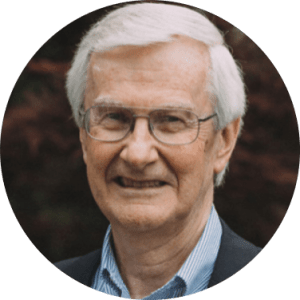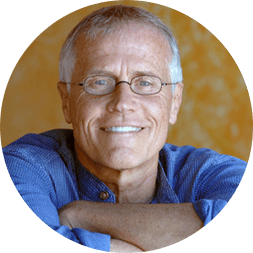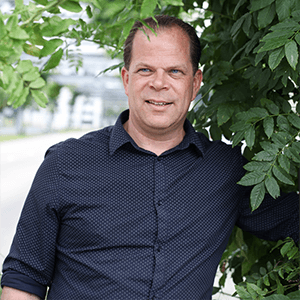The environmental disaster already affecting us directly and indirectly in daily life and business
The Texas freeze in February 2022 caused an energy blackout, and forced three major semiconductor plants to close, making a global pandemic-triggered semiconductor shortage and further slowing the production of microchip-dependent cars.
Read more
The tighter regulations to run a business in a sustainable way
“Global ESG regulation is set to make a leap with new requirements for private businesses to report on and prevent adverse impacts on climate, the environment, and human rights.”
Read more
The increasing awareness of consumers around environmental issues affecting their lifestyle and choices
50% of consumers surveyed globally said they have become more eco-friendly in the past six months.
57% of consumers are willing to change their purchasing habits to help reduce negative environmental impact.
71% who indicated that traceability is very important are willing to pay a premium for brands that provide it.
Read more
Going sustainable can reduce costs, increase profit, and boost innovation
A study found a significant correlation between a company’s resource efficiency and the strength of its financial performance. It also found that reducing resource costs can improve operating profits by up to 60 percent”.
Read more
Growing demand for sustainable consulting service
“The Sustainability Consulting market is expected to hit USD 3.70 Billion by 2021 from USD 1.78 Billion in 2016”.
Read more
Being sustainable now is not only important but also essential and required by regulations
Being sustainable is not only a job for specific fields/skills/expertise/industries
Being sustainable is not only for the environment but for your daily life and your business as well
“Strategic Change for Smart Sustainable Business” is designed to equip you with the essential knowledge and tools to not only survive the current challenges but to thrive in the future. It helps you to understand how to transform your organization towards a sustainable future by using the world-known The Natural Step’s Framework for Strategic Sustainable Development (FSSD) and to achieve strategic advantage and long-term leadership in your industry and/or community.
Is This Course for Me?
This course is designed for all professionals who lead or influence the process of future-oriented changes in the business. You will gain fundamental knowledge of sustainability, systematic thinking, and strategy through a hands-on, participatory experience and dialogues. It will give you insights on how to gain a competitive advantage by finding opportunities in what the future requires for you and/or your clients' business.
Learning Outcome
By successfully completing this course, you will receive a certification in The Natural Step Level 1, which qualifies you to apply the core concepts of sustainability based on The Natural Step Framework for Strategic Sustainable Development.
You will also walk away with:
- An understanding of the benefits of incorporating socio-ecological positive changes in a business strategy
- A natural and social science-based strategic perspective for a business to be sustainable and resilient
- An ability to identify future risks and opportunities of your/your clients' businesses
- A process of developing a clear strategy and measures to manage change, and
- A capability to lead your organization/clients to be functional and adaptive when facing unpredictable change
TNS and BCon are now collaborating in developing "future-ready change leaders" who have practical knowledge, frameworks, processes, and tools to lead positive strategic change in the organizations. You will benefit from the experience of both TNS and BCon, learning both the technical and human sides of sustainable future transformation.
It is our passion to increase the number of business leaders who can lead the complex change of overcoming future challenges and unlocking the opportunities of sustainability-driven innovation.

“The quality of the content of TNS sustainability education is unsurpassed. I have studied sustainability formally in my Masterʼs and Doctoral studies at the University of Toronto, through research for my three books, and through attendance at hundreds of conferences on the subject. The TNS framework is the most rigorous, scientifically-based, and practical sustainability methodology on the planet.”
Bob Willard, Author of the Sustainability Champions Guidebook, The Sustainability Advantage, The Next Sustainability Wave

“The whole world has dreamt about a solid definition of sustainability that would allow systematic step-by-step planning. When the definition arrived, delivered by The Natural Step, it was remarkable to see how simple it was.”
Paul Hawken, Author of The Ecology of Commerce, Natural Capitalism

“As we climb mount Sustainability, with the four TNS system conditions at the top, we are doing better than ever on bottom line business. This is not at the cost of social or ecological systems, but at the cost of our competitors who still haven’t got it.”
Ray Anderson, President, Founder and CEO, Interface Inc.
❮ ❯
Learning Experience
- Online e-module, which will give you access to a basic understanding of sustainability,
- Case studies to go through all elements of The Natural Step approach,
- Access to practical templates, tools, and resources to use,
- An opportunity to hear actual cases and lessons learned from other future-oriented organizations, and
- Chances to share, learn from peers, and build networks through dialogues during the sessions
The Facilitators

Berend Aanraad (The Netherlands)
Facilitator/Executive Director
The Natural Step Netherlands
Akira Furumoto (Japan)
Certified Management Consultant (CMC)
Manager of Global Network Division
Business Consultants, Inc. (BCon)
Event Outline
Date:
February 9 & 22, and March 9, 2023 (3 days @4 hours)
Time:
05:00AM - 09:00AM Los Angeles
08:00AM - 12:00PM New York
02:00PM - 06:00PM Paris
09:00PM - 01:00AM (+1) Singapore
10:00PM - 02:00AM (+1) Tokyo
Investment:
US$1,500
Special price for the holder of any BCon's licenses (LIFO, THE, ITS, ACT): US$1,050 (30% off)
Technical Requirement:
・Access to Zoom webinar software
・Access to an Internet browser
(Recommended: 2 separate screens, one for the webinar, and the other for the workshop platform)
Course Preparation:
- A registration confirmation email will be sent automatically to you after you submit the registration form
- An email with the payment details will be sent separately soon after your registration is confirmed
- Once the payment is confirmed, you will receive an email for access to your pre-work (The online e-module, "The Natural Step Basic", is a prerequisite of the course for all the participants to have the common references and understanding. The pre-work will takes 1.5 to 2 hours in total)
- Close to the start of the course, you will receive a detailed course outline and technical information to join the course
Registration
Registration closed
Cancelation policy:
- Before January 12, 2023: Full refund (minus administration & online module fee)
- Between January 12 to 19, 2023: 50% refund (minus administration & online module fee)
- After January 19, 2023: No refund
Sustainable development will not happen outside the context of a robust definition of sustainability – trial and error and various piecemeal attempts will not take us there. And, if we don’t really know where we are going, how will we assess progress and how would we know when we’ve arrived?
Due to the complexity and the limits of technology and our imagination, a sustainable society can only be defined at the level of principle. It cannot be defined at the level of detail. Sustainability will inherently appear in many different shapes depending on differences in conditions for different regions and organizations. Furthermore, technical and cultural development will keep changing conditions. What appears, for instance, to be an efficient way of sustainable energy today may seem hopelessly inefficient tomorrow. To lock on relatively specific targets too early in strategic approaches is a mediocre way of strategic planning. The over-anxious focus on detailed answers, means we carry today’s preoccupations, problems, and prejudices into the future, failing again to see the bigger picture and the full horizon of sustainability.
For basic principles for social and ecological sustainability to be operative, they need to have the following characteristics:
- They must be necessary for sustainability (to avoid unnecessary restrictions and to reduce distraction)
- They must be sufficient for sustainability (to avoid gaps in the thinking and to allow elaboration into second and higher orders of principles so as to cover all aspects that are relevant for sustainability)
- They must be universal (for interdisciplinary and cross-sector cooperation to occur)
- They must be concrete and applicable as criteria for re-design (so as to allow the step-by-step approach in real-life planning)
- They must not overlap, but be mutually exclusive (so as to allow comprehension and monitoring of approaches)
When social sustainability is achieved people’s capacity to fulfill their human needs is not systematically undermined.
This means that in a sustainable society, social systems:
- Maintain or create good health (physically, emotionally, and mentally)
- Maintain or establish influence (participation, having a voice, democratic rights)
- Have possibilities to learn, to be competent (learning, adaptability, personal growth, access to knowledge)
- Treat everyone impartially (impartial treatment, fairness, respect, diversity)
- Provide opportunities to be a part of the system (sense of purpose, caring, opportunity to make a difference)
Those five aspects are essential for our social system to build and maintain trust for the society to be functional and those human needs have to be met within the ecological constraints of our planet.
Sustainability principles provide clarity on the goal – the criteria for success - and open up the possibility of backcasting from that position of success, regardless of how it looks in detail. To support this we need a systematic step-by-step approach for all actors to move toward the vision in such a way that it provides a sufficient return on economic and other resources on the way, so as to sustain the process. This calls for a unifying framework for appropriate analyses of practices, analyses of visions and solutions, guidelines for the development of strategic plans, and for more appropriate selection and use of tools and concepts.
You can utilize the Natural Step’s sustainability principles to align the basic understanding of sustainability with any stakeholders involved in your sustainability efforts. It helps build awareness and capacity around sustainability in organizations.
To add to that, having strategic planning toward sustainability will help you to identify and communicate the desirable future vision, and practical steps to achieve the vision. With the combination of “where are we heading” and “how we achieve that”, you will be able to clearly communicate the reason behind the sustainability initiatives you are implementing.
How can we think from the perspective of the full potential resources, when there are many constraints in current technologies and culture? - Plan for full resource availability
Planning could occur from a perspective of the full resource potential of the system, based on physics and ecology, rather than being based on the constraints of current technologies and cultures. Without a definition of sustainability, sustainable resource potentials are not calculable.
How can we make decisions that involve trade-offs between different sustainability goals? - Manage trade-offs
Between different investments, alternatives could be dealt with in a logical way, evaluated as stepping stones towards sustainability rather than as imperfect choices in the short time perspective. You cannot, by any scientific method, evaluate different options if the pros and cons come in different dimensions. “Is it better to risk polluting with mercury than to waste energy (as in the case of low-energy light bulbs)?” Analyzing the either/or is not helpful; but if you know the end goal, you can evaluate various options for their capacity to serve as stepping stones to bringing the process to a stage where the trade-off doesn’t exist. You model optional routes to complete success, rather than evaluating snapshots as good vs. bad. If you frame a choice between plague or cholera, you are sure to get one or the other!
How can we expand our perspectives and take the whole system into consideration? - Set the right scope for analysis
The problem of “system boundaries” could be solved. Science puts demands on clear and adequate system boundaries when systems are studied. Sustainability discourses in an organization often come with debates about where to draw the system boundaries. A trained scholar would ask: “Do you mean the factory with its walls, or do you include: Clients? Supply chains? Other stakeholders? The whole world?” The latter is often proposed with a little smile, to demonstrate how un- imaginable that would be. Yet, the truth is; when it comes to sustainability, the whole world needs to be considered at first, to some level of detail. Again, basic principles of goals may provide the solution. You put yourself in the shoes of the CEO or project manager and ask yourself what, in the whole world, needs to be taken into account to make the respective organization/planning endeavors support societal compliance with sustainability principles, and you let this inform your decision on system boundaries, geography to discipline and beyond. And the information you need does not relate to your goal, and need not be taken into account. Purpose as system boundaries.
How can we avoid unknown problems? - Understand the future impacts using the principles
So, you can do much better than just fixing the impacts you already know. For instance, CFCs could have been banned for large-scale use already before we knew their impacts on the ozone layer. Their extremely low degradability makes it inevitable that they would increase systematically in concentrations, towards unknown eco-toxic thresholds, for as long as they are used outside very tight technical loops, e.g. used large scale in consumer goods. To phase such compounds out before we have exceeded the thresholds, suffered the impacts, and understood the connections, would be a highly advisable rule for a sustainable society.
How can we harness knowledge and collaborate across disciplines? - Expand the shared understanding
It could serve as a shared mental model for interdisciplinary, cross-sector, and cross-cultural cooperation, and move those terms from buzzwords to reality. When teams know the endgame together, it makes it possible to draw the relevant information from their respective “silos”.
How do we handle many existing sustainability tools and theories? - Provide synergy and cohesion between tools and concepts
It could make better use of existing tools and concepts for sustainable development, by selecting and informing the ones needed to reach the goal and informing the development of the ones lacking.
- TNS level 1 not only brings you a shared language and approach to strategic planning for sustainability; It also lets you experience the hands-on application of the framework to real-life cases together with your peers. It provides you with the tools and helps you understand how to transform your and/or your client’s organization toward a sustainable future.
- The training welcomes any professional with the aim to leverage sustainability for business growth, the goal to shape a sustainable future, and the will to lead sustainability-related change, whether in a designated sustainability role or not.
- The course is a hands-on, participatory experience that allows you to learn quickly, apply sustainability concepts and strategic approaches to real situations and transfer what you learn to your business, organization, or community.
- The Natural Step is a worldwide network of organizations that provide services in many countries/regions with partnerships and clients from various scales and sectors (education, cities, industry, research, retail, etc.), including Nike and Interface. In the past decades, The Natural Step has engaged with over 1 million individuals in workshops, strategic planning programs, and courses all over the world.
When you successfully complete this course, you will receive a certificate of completion. You will be able to explain and begin to apply The Natural Step’s Framework for Strategic Sustainable Development (FSSD) to enable your business, community, or organization to take a leadership role in sustainability.
Depending on how large the sustainability project and involvement is, it can be recommended to have multiple leaders who are certified within a project. However, by completing this certification, one leader can start leading the sustainability project.
You can educate other members of the project by using FSSD to build the desirable vision, create an analysis of the current situation, and agree on the action items by leading the discussion within the framework.
The Level 1 certificate also grants you access to The Natural Step Level 2 - Leadership for Sustainability course.